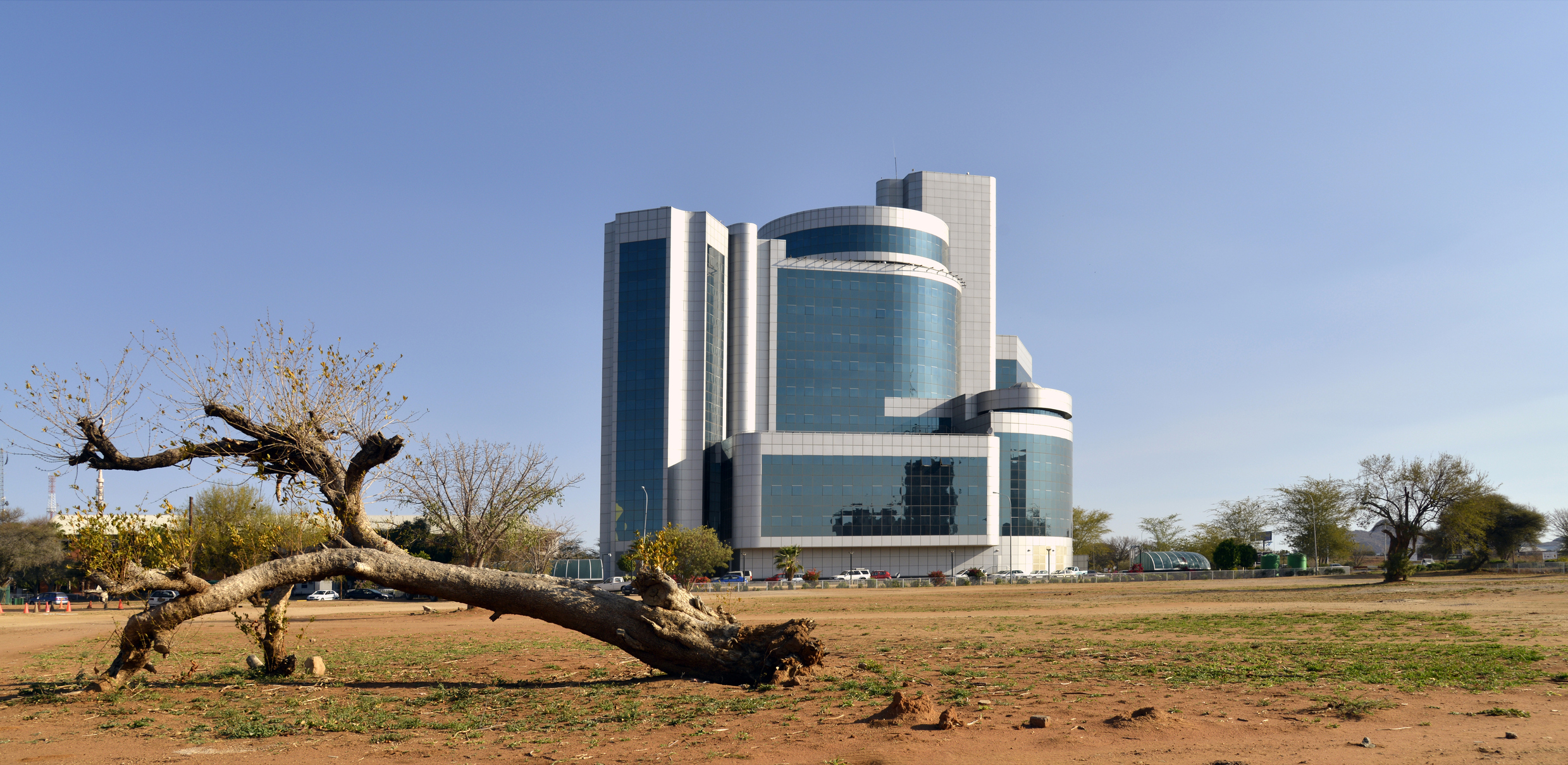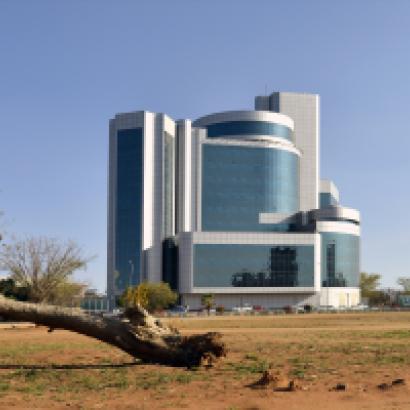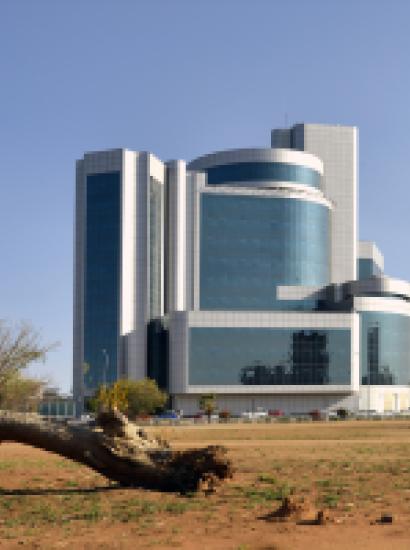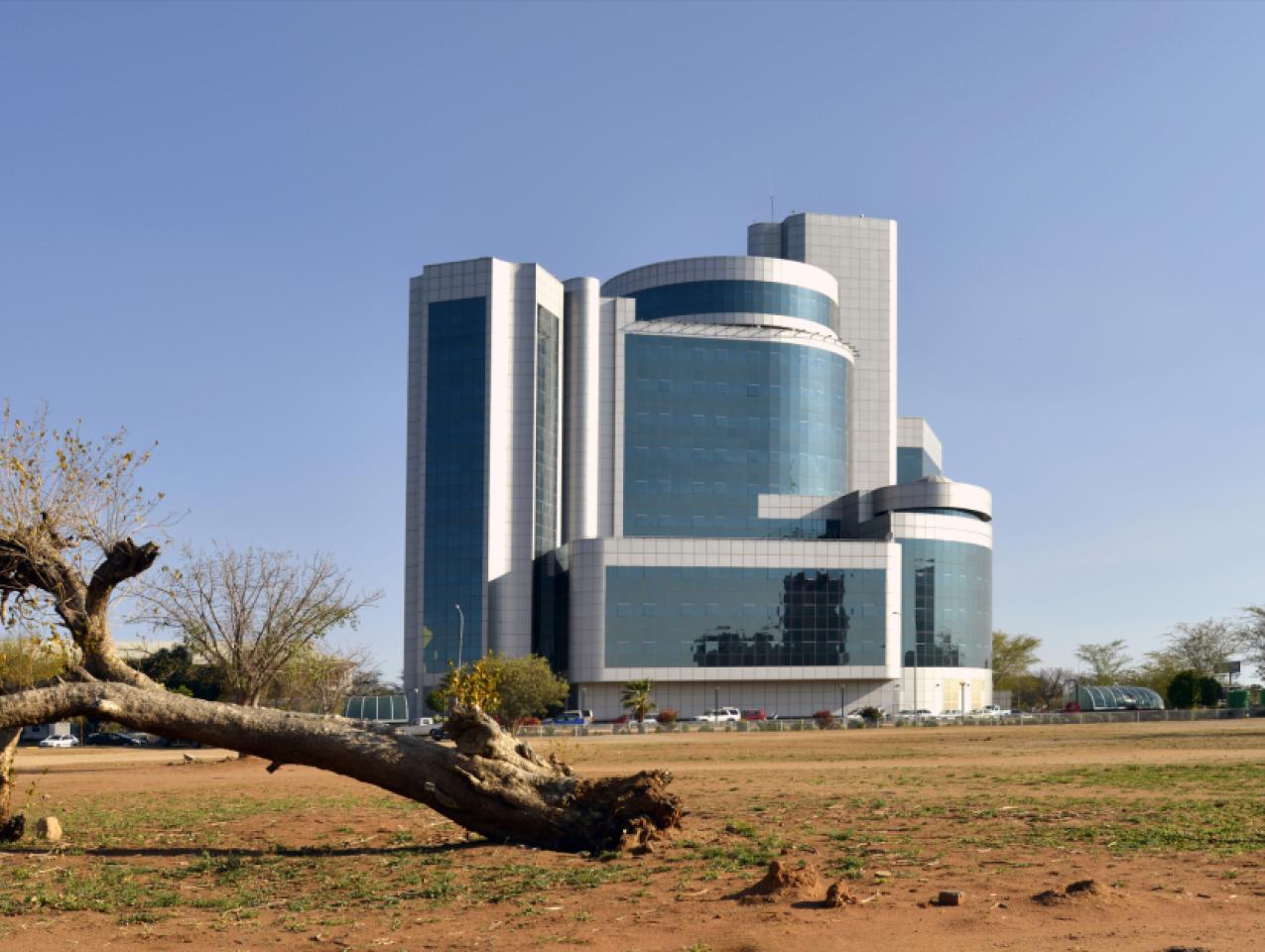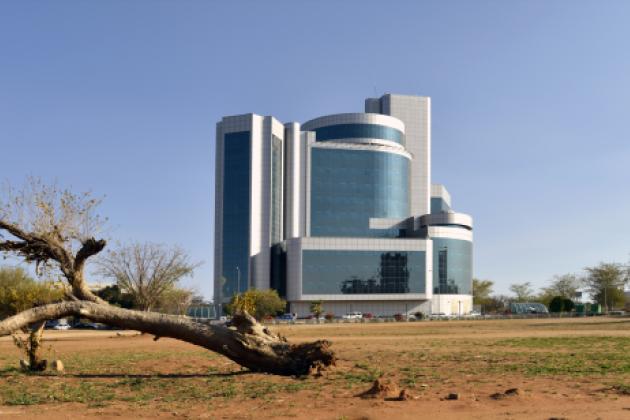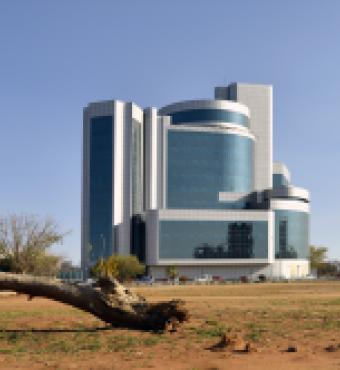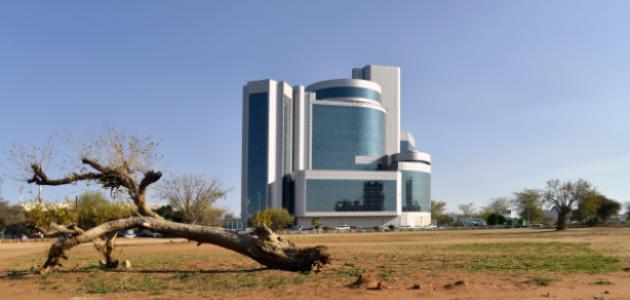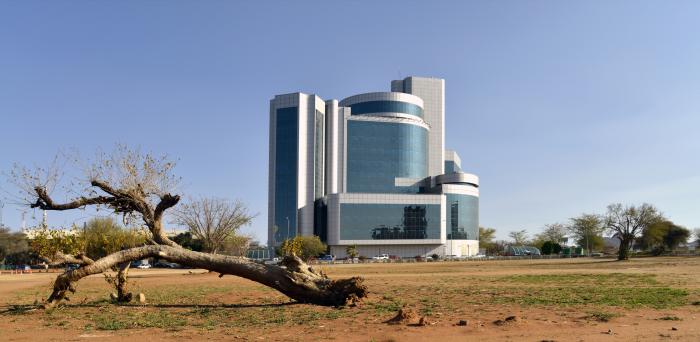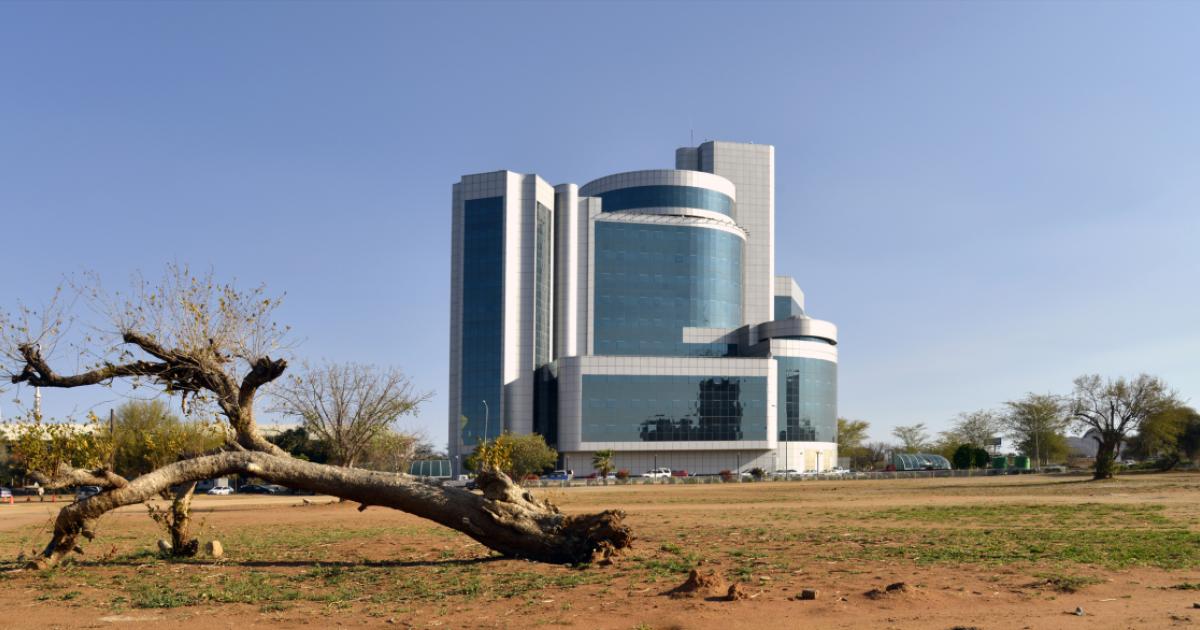Introduction
In Africa, as in every region, it is the quality and characteristics of governance that shape the level of peace and stability and the prospects for economic development. There is no more critical variable than governance, for it is governance that determines whether there are durable links between the state and the society it purports to govern. The nature of governance is central because it determines whether the exercise of authority is viewed as legitimate. Legitimate authority, in turn, is based on accepted laws and norms rather than the arbitrary, unconstrained power of the rulers. Governance also has an important regional dimension relating to the institutional structures and norms that guide a region’s approach to challenges and that help shape its political culture.1 This is especially relevant in looking at Africa’s place in the emerging world since this large region consists of 54 states—close to 25% of the U.N.’s membership—and includes the largest number of landlocked states of any region, factors that dramatically affect the political environment in which leaders make choices. Consequently, national and regional governance factors interact continuously.
In this paper, I look first at the emergence of the African state system historically, including colonial legacies and the Cold War’s impact on governance dynamics. This discussion leads to an analysis of African conflict trends to help identify the most conflict-burdened sub-regions and to highlight the intimate link between governance and conflict patterns. The third section looks at the critical role of political and economic inclusion in shaping peace and stability and points to some of the primary challenges leaders face in deciding how to manage inclusion: whom to include and how to ‘pay’ for it. The essay concludes with a sobering reflection on the challenge of achieving resilient governance.
Impact of Historical Origins of African State System2
It should not be surprising that there is a weak social compact between state and society in many African states. Most of the region’s states were defined geographically by European cartographers at the start of the colonial period. The modern African state system has been gradually Africanized, albeit on more or less the identical territorial basis it began with at the time of decolonization in the second half of the 20th century. Less than 20% of Africa’s states achieved statehood following rebellion or armed insurgency; in the others, independence flowed from peaceful transfers of authority from colonial officials to African political elites. The initial constitutions and legal systems were derived from the terminal colonial era.
Cold War geopolitics reinforced in some ways the state-society gap as the global rivalry tended to favor African incumbents and frequently assured they would receive significant assistance from external powers seeking to build diplomatic ties with the new states. This situation supported an external orientation in African politics in which Cold War reference points and former colonial relationships assured that African governments often developed only a limited sense of connection to their own societies. The African state system has gradually developed a stronger indigenous quality only in the last twenty-five years or so. Africa’s states are the world’s newest, and it can hardly be surprising that Africans define themselves in terms of multiple identities including regional, tribal, clan-based, and religious ones—in addition to being citizens of a relatively new state.
For these and other reasons, the state-society gap lies at the heart of the problems faced by many states. Governments that rely on foreign counterparts and foreign investment in natural resources for a major portion of their budgets—rather than on domestic taxation—are likely to have weaker connections to citizens and domestic social groups. This adds to the challenge of building national identities; this ‘identity vacuum’ increases the risk that political elites and social groups will capture the state for narrower, self-interested purposes that weaken, rather than strengthen, social cohesion.
Conflict Trends and the Governance Link
African conflict trends point to a complex picture, made more so by the differing methodologies used by different research groups. It seems clear that Africa’s conflict burden declined steadily after the mid-1990s through the mid-2000s owing to successful peace processes outstripping the outbreak of new conflicts; but the burden has been spiking up again since then. One influential research group, SIPRI in Sweden, counted a total of 9 active armed conflicts in 2017 (in all of Africa) plus another 7 post-conflict and potential conflict situations.3
More revealing is the granular comparison of conflict types over time. Thus, another report by PRIO and the University of Uppsala (two Norwegian and Swedish centers) breaks conflict down into state-based (where at least one party is a government), non-state-based (neither party is an official state actor), and one-sided conflicts (an armed faction against unarmed civilians). This study points to a marked increase in state-based conflicts, owing in significant part to the inter-mixture of Islamic State factions into pre-existing conflicts. This study notes that in 2007 Africa saw 12 conflicts in 10 countries. Ten years later, in 2017, the number of conflicts was 18, taking place in 13 different countries. Using a second conflict lens, the number of non-state conflicts has increased dramatically in recent years, peaking in 2017 with 50 non-state conflicts, compared to 24 in 2011. These events point to extreme state fragility and a loss of sovereign control over violence in the 11 affected countries, led by Nigeria, South Sudan, and the Central African Republic (CAR). One-sided violence against unarmed civilians has also spiked up since 2011.4
These numbers require three major points of clarification. First, many of the conflicts enumerated take place within a limited number of conflict-affected countries and in clearly-defined geographic zones (the Sahel and Nigeria; Central Africa; and the Horn.) Second, the levels of direct ‘battle deaths’ from these events is relatively low when compared with far higher levels in the wars of the Middle East. Some of these conflicts are, in reality, low-tech, sporadic skirmishes and armed attacks. Third, Africa’s conflict burden reflects different forms and sources of violence that sometimes become linked to each other: political movements may gain financing and coercive support from criminal networks and traffickers, while religious militants with connections to terrorist groups are often adept at making common cause with local grievance activists. Large states and those with complex ethnic and geographic features—e.g., the DRC, Nigeria, Uganda, the Sudans, Ethiopia—may be especially prone to such multi-sourced violence. Indeed, it should be added that a high percentage of today’s conflicts are recurrences of previous ones, often in slightly modified form with parties that may organize under more than one flag. One scholar specializing on the Horn of Africa likens the situation a ‘political marketplace’ in which politics and violence are simply options along the spectrum pursued by powerful actors.5
This brief overview of conflict in Africa signals the severity of the security challenges to African governance, especially in those sub-regions that feature persistent and recurrent outbreaks of violence. Recent developments add further complications to the region: (a) the collapse of Libya after 2011, spreading large quantities of arms and trained fighters across the broader Sahel region; (b) the gradual toll of desertification placing severe pressure on traditional herder/farmer relationships in places like Sudan and Nigeria; and, (c) the proliferation of local IS or Al Qaeda franchises in remote, under-governed spaces. Not surprisingly, incumbent leaders facing these challenges look to short-term military remedies and extend a welcome to military partners—with France, the United States, and the United Nations the leading candidates.
The link between conflict and governance is a two-way street. Security challenges can impose tough choices on governments that may act in ways that compound the problem, opening the door to heightened risks of corruption and the slippery slope of working with criminal entities. On the other hand, weak or destructive governance is sometimes the source of conflicts in the first place. This can happen in several ways. In the thankfully rare cases where national governance breaks down completely—South Sudan, Somalia, CAR—its absence is an invitation to every ethnic or geographic community to fend for itself—a classic security dilemma.
A second conflict pattern can develop along the lines of ethnic cleavages which can be readily politicized and then militarized into outright ethnic violence. The challenge facing Africa’s leaders—perhaps above all others—is how to govern under conditions of ethnic diversity. Admittedly, the problem is by no means uniquely African, but it is very commonly experienced in Africa.
When conflicts evolve along ethnic lines, they are readily labelled ‘ethnic conflict’ as if ‘caused’ by ancient hatreds; in reality, it is more often caused by bad governance and by political entrepreneurs. Poor leadership can result in acts of commission or omission that alienate or disenfranchise geographically distinct communities.
A third pattern flows from the authoritarian reflex where ‘big men’ operate arbitrary political machines, often behind a thin democratic veneer. Typically, such leaders scheme to rig elections or to change constitutional term limits—actions seen in recent years in such countries as Rwanda and Uganda. Despite the adoption of constitutional term limits in many African countries during the 1990s, such restrictions have been reversed or defied in at least 15 countries since 2000, according to a recent report.6
The conflict-governance link takes various forms, and it points to the centrality of the variable of leadership. In ‘new’ countries such as most of those in Africa,7 where the rule of law is in competition with the rule of men, leaders play a strikingly critical role, for good or ill. Wise leadership respects ethnic diversity and works toward inclusive policies. This theme, which is further developed below, is especially critical bearing in mind that Africa is the world’s most ethnically complex region, home to 20 of the world’s most diverse countries in terms of ethnic composition.8
Governance Trends and Scenarios
African governance trends were transformed by the geopolitical changes that came with the end of the Cold War. Almost at a stroke, the relationships between African governments and the major powers and major sources of concessional finance were upended, while political liberalization in the former Soviet bloc helped to trigger global political shock waves. Space opened up for African citizens and civil society movements, while incumbent regimes were no longer able to rely on assured support from erstwhile external partners. These partners, for their part, sometimes disengaged from close political ties and often brought new governance conditions into their assistance programs. Freedom House calculated that 17 out of 50 countries it covered were ‘free’ or ‘partly free’ in 1988, compared to 31 out of 54 countries in these categories by 2015. Of the latter, 10 achieved the top rating of ‘free,’ a conclusion close to ratings by the Economist Intelligence Unit (EIU).9 A more bullish reading drawn again from multiple sources is that over 60% of people in sub-Saharan Africa live in ‘free’ or ‘partly free’ countries, a situation that enabled a Brookings Institution study to conclude that “the region [is] moving in fits and starts towards greater democratic consolidation.”10 Countries absent from the apparent democratic wave missed its beginnings in the early and mid-1990s, became caught up in protracted or recurrent civil conflicts, or degenerated as a result of electoral violence or ‘big men’ patrimonialism.
Against this broad picture, what is striking is the more recent downward trend in democratic governance in Africa and the relative position of African governance when viewed on a global basis. Freedom House’s ratings see a pattern of decline since 2005 and note that 10 out of 25 countries (worldwide) with declining ratings are in Africa. The same source concluded that 7 out of the 12 worst scores for political rights and civil liberties are African.11 As noted, the reasons vary: patrimonialism gone wrong (the ‘big man’ problem), extreme state fragility and endemic conflict risks, the perverse mobilization of ethnicity by weak or threatened leaders.
The long-term, global pushback by the leading authoritarian powers against liberal governance norms has consequences in Africa and other regions as governments directly act to ‘close the space’ for civil society to operate. These dynamics often lead to increased state fragility or the ‘re-authoritarianization’ of once more participatory governance systems.12 The trend is sometimes, ironically, promoted by western firms and governments more interested in commercial access and ‘getting along’ with existing governments than with durable political and economic development. African states, along with Asian, Middle Eastern, and even European governments, have all been affected. The campaign by some (but not all) African states to pull out of the International Criminal Court is but one illustration of the trend. The swing against western norms was captured in an interview with Uganda’s repeatedly re-elected president Yoweri Museveni who remarked “How can you have structural adjustment without electricity? … The Chinese understand the basics. …You can’t impose middle class values on a pre-industrial society.”13
This outline leads us to examine more closely the sources of legitimacy in African governance systems. One can identify five bases of regime legitimacy in the African context today. The first type is rights-based legitimacy deriving from rule of law, periodic elections, and alternation of political power, the kind generally supported by western and some African governments such as Ghana and Senegal. In direct contrast is the second model: statist, performance-based legitimacy, measured typically in terms of economic growth and domestic stability as well as government-provided services—the legitimacy claimed by leaders in Uganda and Rwanda, among others. Leaders may not be the only ones who support this definition of legitimacy.
A third, less often recognized base of legitimacy can be called ‘conventional African diplomatic legitimacy’ wherein a government—however imperfectly established—is no more imperfect than the standard established by its regional neighbors. Regional governance comes into play here, and certain precedents may get set and then ratified by regional or sub-regional organizations. For example, the election day itself goes more or less peacefully, the vote tabulation process is opaque or obscure, and the entire process is shaped by a pre-election playing field skewed decisively in favor of the incumbents. Sometimes, another precedent flows from these—namely, pressure from outside the country but with some support internally as well for creating a transitional government of national unity. Such post-electoral pacts reflect the conclusion that stability is more important than democracy.
Still another form of legitimacy in Africa sometimes derives from traditional political systems based on some form of kingship. Long-standing kingdoms such as those in Morocco and Swaziland are recognized national states. More frequently, this form of rule operates at the sub-state level as in the case of the emir of Kano or the Sultan of Sokoto in Nigeria or the former royal establishments of the Baganda (Uganda) or the Ashanti (Ghana). Ousted royals such as Haile Selassie (Ethiopia) and King Idriss (Libya) may be replaced by self-anointed secular rulers who behave as if they were kings until they, in turn, get overthrown. But established and recognized forms of inherited rule cannot be lightly dismissed as ‘un-modern,’ especially when linked to the identity of an ethnic or tribal group, and could be construed as a building block of legitimacy.
It may be useful to recall that historical kingships or dynasties were the common form of rule in Europe, India, China until modern times, and still is the predominant form of rule on the Arabian Peninsula. Legitimacy based on successful predation and state capture was well known to the Plantagenets and Tudors as well as the Hapsburgs, Medicis, and Romanovs, to say nothing of the Mughal descendants of Genghis Khan.14 In this fifth model of imagined legitimacy, some African leaders operate essentially on patrimonial principles that Vladimir Putin can easily recognize (the Dos Santos era in Angola, the DRC under Mobutu and Kabila, the Eyadema, Bongo, Biya, and Obiang regimes in Togo, Gabon, Cameroon, and Equatorial Guinea, respectively).15 Such regimes may seek to perpetuate themselves by positioning wives or sons to inherit power. Rule that is based on predation and political monopoly is unlikely to enjoy genuine popular legitimacy, but it can linger for decades unless there are effective countervailing institutions and power centers.
Against this backdrop, where is African governance headed? The key lies in identifying the variables that will shape its context. These include macro variables such as educational access (especially for women), climate change impact and mitigation, development and income growth rates, demographic trends, internet access, urbanization rates, and conflict events. Beyond such macro factors, several less obvious variables seem important to the political and economic governance future of the region. One of these is the potential influence exerted by the region’s leading states, measured in terms of size, population, economic weight, and overall political clout and leadership prestige. If a critical mass of the leaders—e.g., South Africa, Nigeria, Kenya, Ethiopia, Cote d’Ivoire, Algeria, Egypt—are heading in a positive direction, they will pull some others along in their wake; of course, the reverse is also true.
One snapshot by the influential Mo Ibrahim index of African Governance noted in 2015 that ‘overall governance progress in Africa is stalling,’ and decided not to award a leadership award that year. (No award was made in 50% of the years since the program was launched in 2007; former Liberian president Ellen John Sirleaf won the award in 2017. Interestingly, small and mid-size state leaders have won the award so far.) The point here is that peer pressure, examples, and precedents are especially important in a region of 54 states, many of them dependent on satisfactory relations with their neighbors. Due to the influence of previous South African and Nigerian leaders, the African Union established the African Peer Review Mechanism (APRM) to review and report on a range of governance criteria. By 2016, 35 AU members had ‘joined’ it, but less than half actually subjected themselves to being assessed. African states are by no means homogeneous in terms of governance standards: as the Mo Ibrahim index based on 14 governance categories reported in 2015, some 70 points on a scale of 100 separated the best and worst performers.16
Stated another way, if the abolition of term limits, neo-patrimonialism, and official kleptocracy become a regionally accepted norm, this will make it harder for the better governed states to resist the authoritarian trend. If more leaders practice inclusive politics or find themselves chastened by the power of civil society to do so, this could point the way to better political outcomes in the region. While this seems obvious, it is less clear what vectors and drivers will have the most weight in shaping that outcome.
Other Critical Governance Drivers
One of these will be the role and weight of various powerful external actors. African political elites are more determined than ever to shape their own destiny, and they are doing so. But the context in which their choices are made is directly influenced by global political trends and the room for maneuver that these give to individual governments and their leaders. The rise of non-Western centers of power and the return of global polarization among major powers reduce the presence and weight of western influence. This provides wide opportunity for governments to experiment, to chart a course independent of Western preferences, but it can also encourage them to move toward authoritarian, state capitalist policies when that is the necessary or the expedient thing to do. Africa’s geopolitical environment is shaped by Africans to a considerable degree. But it also reflects the impact of Arab, Russian, Chinese, Indian, European and U.S. vectors of influence which project their differences into African societies. If African political elite opinion converges with that of major external voices in favoring stabilization over liberal peacebuilding agendas, the implications for governance are fairly clear.17
Another driver of governance trends will be the access enjoyed by youthful and rapidly urbanizing populations to the technologies that are changing the global communications space. Relatively unfettered access to the internet via smart phones and laptops brings information—and hence potential power—to individuals and groups about all kinds of things: e.g., market prices, the views of relatives in the diaspora, conditions in the country next door, and the self-enrichment of corrupt officials. Issues of corruption and transparency are likely to become driving themes in African politics. The balance of power between official and non-official actors will likely shift, as networked activists assert their ability to organize and take to the streets on behalf of diverse causes. Overturning regimes in Africa’s often fragile states could become easier to do, without necessarily leading to better governance. The same technology vectors can also empower criminal, trafficking, and terrorist networks, all of which pose threats to state sovereignty. In sum, the digitization of African politics raises real challenges for political leaders and has the potential to increase their determination to digitize their own tools of political control.
The Sources of Resilient Governance
This brief essay began by identifying the state-society gap as the central challenge for African governance. In these relatively new nations, the critical task for leadership is to build a social contract that is sufficiently inclusive to permit the management of diversity. To illustrate, when there are 2.2 billion Africans, 50% of whom live in cities, how will those cities (and surrounding countryside) be governed? What policies and laws will determine relations between farmers and urban dwellers, between farmers and herders, between diverse identity groups living in close proximity or encroaching on each other’s farm land, and between public officials, criminal networks and ordinary citizens? The optimistic reply—and it is a powerful one—is that Africans will gradually build inclusive political and economic institutions.18 This, however, requires wise leadership.
Political leaders everywhere face competing demands in this regard. On the one hand, they recognize the need for strong, responsive state institutions; weak, fragile states do not lead to good governance. Yet political stability cannot be based on state power alone, except in the short run. Political and economic inclusion is the companion requirement for effective and legitimate governance. The question then becomes, how to be inclusive?19 A number of African states have decentralized their political decision-making systems and moved to share or delegate authority from the center to provincial or local levels. The jury is still out on the merits of this practice. The cases of Nigeria, Kenya, and South Sudan suggest that each case must be assessed on its own merits. At times, devolution has had major fiscal and governance consequences, including serving as a vehicle for co-option and corruption. Large countries such as the DRC, Ethiopia, and Mozambique are likely to experience pressures against centralized, authoritarian, or one-party governance (whether accompanied by real elections or not).
Another basic question is, whom to include? Non-official institutions and civil society may have very different ideas from the national government on this issue, leading to debates about legitimacy. Yet, governments are expected to govern and make decisions after consulting relevant stakeholders. Ideally, African nations will benefit when civil society respects the state’s role (as well as the other way around); rather than one-sided advocacy, both sides should strive to create a space for debate in order to legitimize tolerance of multiple views in society.
The imperative for inclusion raises many questions: should the priority be to achieve inclusion of diverse elites, of ethnic and confessional constituencies, of a sample of grass roots opinion leaders? Should inclusion be an ongoing process or a single event? For example, is it more effective to negotiate a power-sharing pact among key parties and social groups (as in Kenya) or is there possible merit in a periodic ‘national dialogue’ to address issues that risk triggering conflict? Building an inclusive political system also raises the question of what levels of the society to include and how to assure that local communities as well as groups operating at the national level can get their voices heard.
In some societies, traditional, tribal authorities may offer informed and genuinely accepted governance, provided that they are not merely government appointees pursuing decentralized self-enrichment. Legal norms are an integral part of the discussion about inclusivity since they affect every aspect of economic and personal life; this poses a critical question over whether individual rights or group rights take precedence in the normative hierarchy. There is also the question of inclusion of specific demographic cohorts: women, youth, and migrants from rural to urban areas (including migrant women) all face issues of exclusion that can have an impact on conflict and governance. Misguided policies at the national level combined with cultural constraints facing these social groups may increase exclusion and create seeds of future trouble.
In light of this discussion of types of inclusion, the implications for dealing with state fragility and building greater resilience can now be spelled out. Some regimes seem resilient because of their apparent staying power but actually have a narrow base of (typically ethnic or regional) support. The regime in this case captures the state, co-opts the security organs, and dissolves civil society. When a seemingly brittle regime reaches the end of its life, it becomes clear that the state-society gap is really a regime-society gap; the state withers and its institutions become hollow shells that serve mainly to extract rents.
The problems that face African governments are universal. But African societies are exposed to especially severe pressures, and governments must operate in an environment of high social demands and limited resources and capacity with which to meet them. These circumstances can generate an authoritarian reflex and the temptation to circle the wagons against all sources of potential opposition. The result is transitory resilience of the regime, but shaky political stability, declining cohesion, and eventual conflict or violent change.
The most promising pattern is adaptive resilience in which leaders facing such pressures create safety valves or outlets for managing social unrest. Some African leaders such as Ghana’s Jerry Rawlings, Zambia’s Kenneth Kaunda, or Mozambique’s Joachim Chissano accept and respect term limits and stand down. A more recent example of adaptive resilience is being demonstrated by Ethiopia’s Abiy Ahmed. His dramatic tenure since April of 2018 appears to be shaking up the state’s creaky authoritarian services and creating the space for important adaptations such as ending a long-standing state of emergency, freeing political prisoners, reaching out to a wide range of foreign partners, and extending the olive branch to Eritrea with whom Ethiopia had fought a costly war. The quality and durability of such leader-defined adaptive resilience cannot be assured and can be reversed unless the associated norms become institutionalized.
A long-term route to political and economic success has been comprehensively documented by Daron Acemoglu and James Robinson in their global study of why nations fail or succeed. In this view, nations fail because of ‘extractive economic and political institutions’ that do not provide incentives for growth and stability. They succeed when there are political conditions that permit a broad coalition to impose ‘pluralist political institutions’ and ‘limits and restraints’ on ruling elites.20 Thus, resilience of both state and society may hinge in the end on the rule of law replacing the rule of men. This we might call transformative resilience.21
The development of inclusive institutions may involve struggles that enable political and societal actors to check the domination of entrenched rulers and to broaden rule-based participation in governance. For Acemoglu and Robinson, such turning points occur in specific, unique historical circumstances that arise in a society’s development.
An Interim Conclusion
It is too soon to tell whether such institutions can evolve in modern Africa as a result of gradual tinkering with reformist agendas, as the legacy of wise leaders; or whether they will only happen as a result of fundamental tests of strength between social and political groups. We know a good deal about what Africans want and demand from their governments from public opinion surveys by Afrobarometer. There is strong demand for jobs, better economic management, reduced inequality and corruption and such outcome deliverables as health, education and infrastructure.22 Those outcomes require effective governance institutions. We do not yet know whether such institutions will consistently emerge, starting with relatively well-governed states, such as Ghana or Senegal, as a result of repeated, successful alternations of power; or whether they will only occur when Africa’s political systems burst apart and are reconfigured. If inclusion is the central ingredient, it will be necessary to explore in greater depth the resources leaders have available to ‘pay’ for including various social groups and demographic cohorts. Even old-fashioned tyrants learn that inclusion or co-option are expensive. Enlightened leaders face a more complex version of the same challenge: how to find and mobilize the resources for broad-based inclusiveness? This point links the reader to the other Africa chapters that have been prepared for this project.
Chester A. Crocker is the James R. Schlesinger Professor of Strategic Studies at Georgetown University. He served as assistant secretary of state for African affairs from 1981 to 1989.







